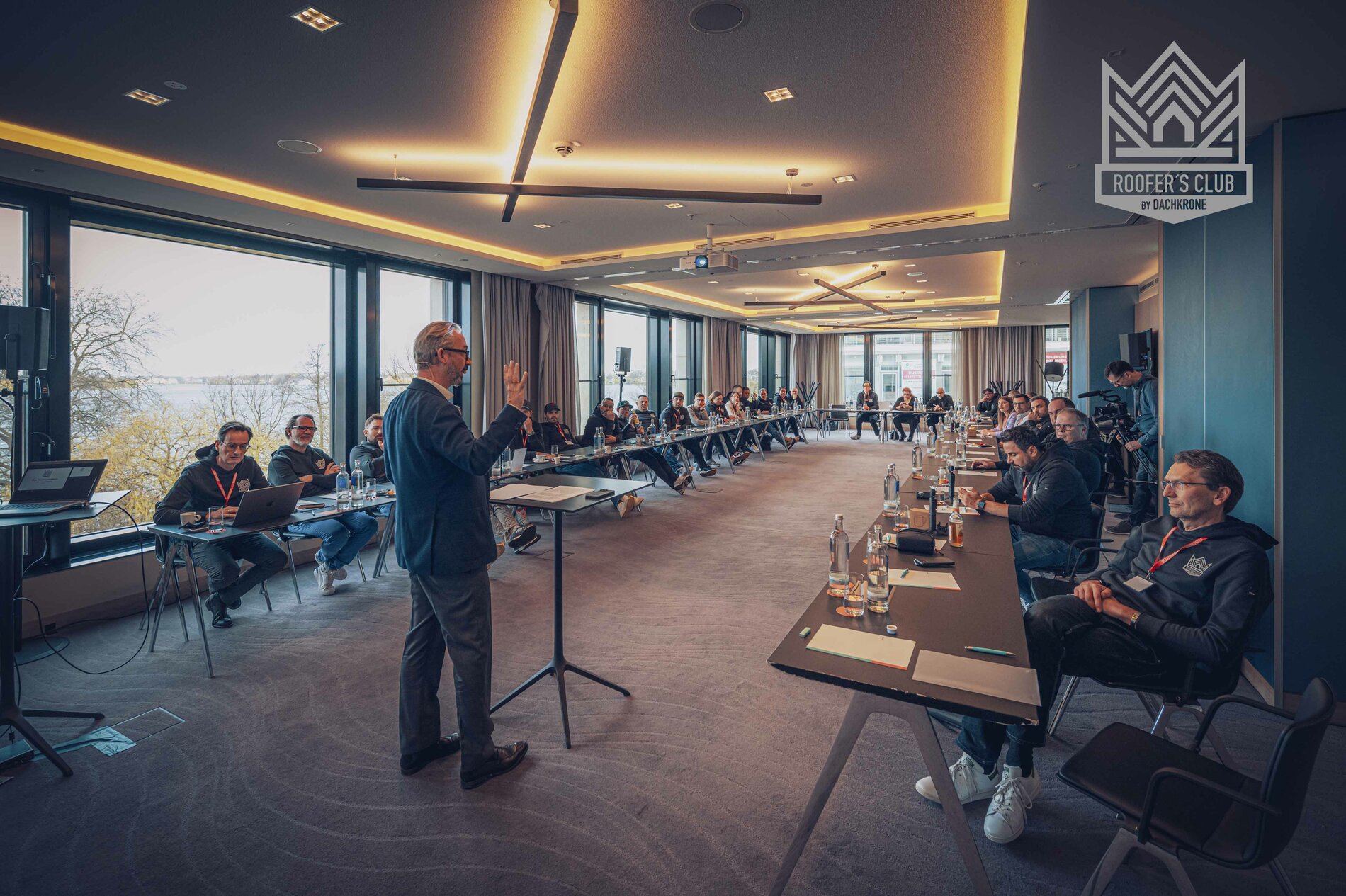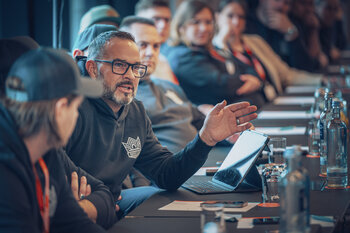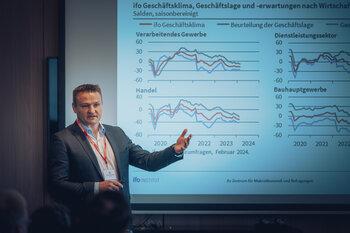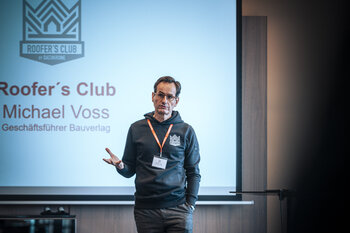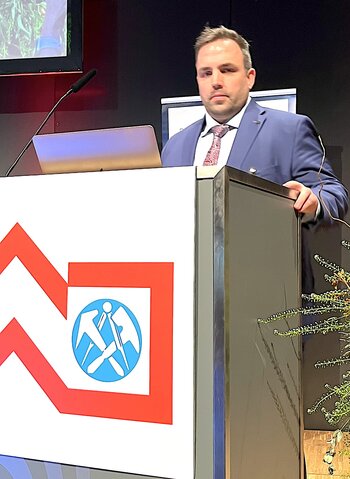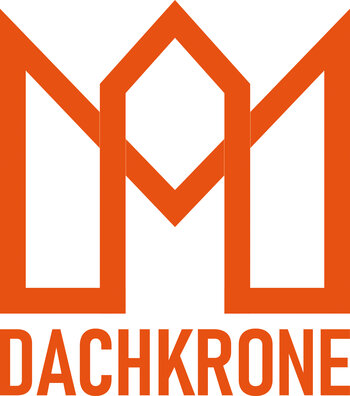Dr. Klaus Wohlrabe, Head of Studies at the ifo Institute and head of the ifo Business Climate Index, emphasizes that the German construction industry is not facing an easy time, but that there are also numerous signs of optimism in the market. Other focal points currently occupying the Roofer's Club range from employee recruitment and digitalization to networking among Germany's most innovative roofing companies. Urs Nies, Managing Director of the Roofer's Club, on the new industry association: "This is where the spearhead of the German roofing trade comes together: ambitious companies, many run by younger owners, who are actively addressing current issues of the future and are keen to develop the industry further."
Newly elected Vice President of the ZVDH with inaugural visit
The importance of the Roofer's Club is also demonstrated by the fact that the newly elected Vice President of the ZVDH, Jan Voges, attended the inaugural event and gave an outlook on his priorities for the coming months, which include vocational training, recruiting young talent and reducing bureaucracy. The well-known architect Martin Murphy from the Hamburg office Störmer Murphy and Partners was also a guest and presented an exhibition of his work as well as exciting new construction topics, such as high-rise construction with wood (Roots project, Hamburg). Thorsten Moortz from handwerk.live was also a guest and gave an overview of the new digital management tools and software solutions for the industry. Top journalists Tanja May (Deputy Editor-in-Chief of BILD) and Jan Fleischhauer (FOCUS columnist) were also present and provided valuable insights into media events and media society.
Big issue: shortage of skilled workers
One issue that is currently a major concern for the roofing industry is the shortage of skilled workers. Max Jünger and Luisa Schmitt from the fast-growing start-up Hammerjobs complain that there is currently a shortage of around 255,000 tradespeople on the market, but that this figure could soon rise to as many as 400,000 as the boomer generation gradually retires. They see solutions in new ways of recruiting skilled workers via social media and job platforms, which are currently still uncharted territory for many skilled trades companies, but can reach the many skilled tradespeople who are willing to change jobs. According to Hammerjobs, only around 20% of employees are not willing to change jobs, while 80% can imagine changing jobs.
